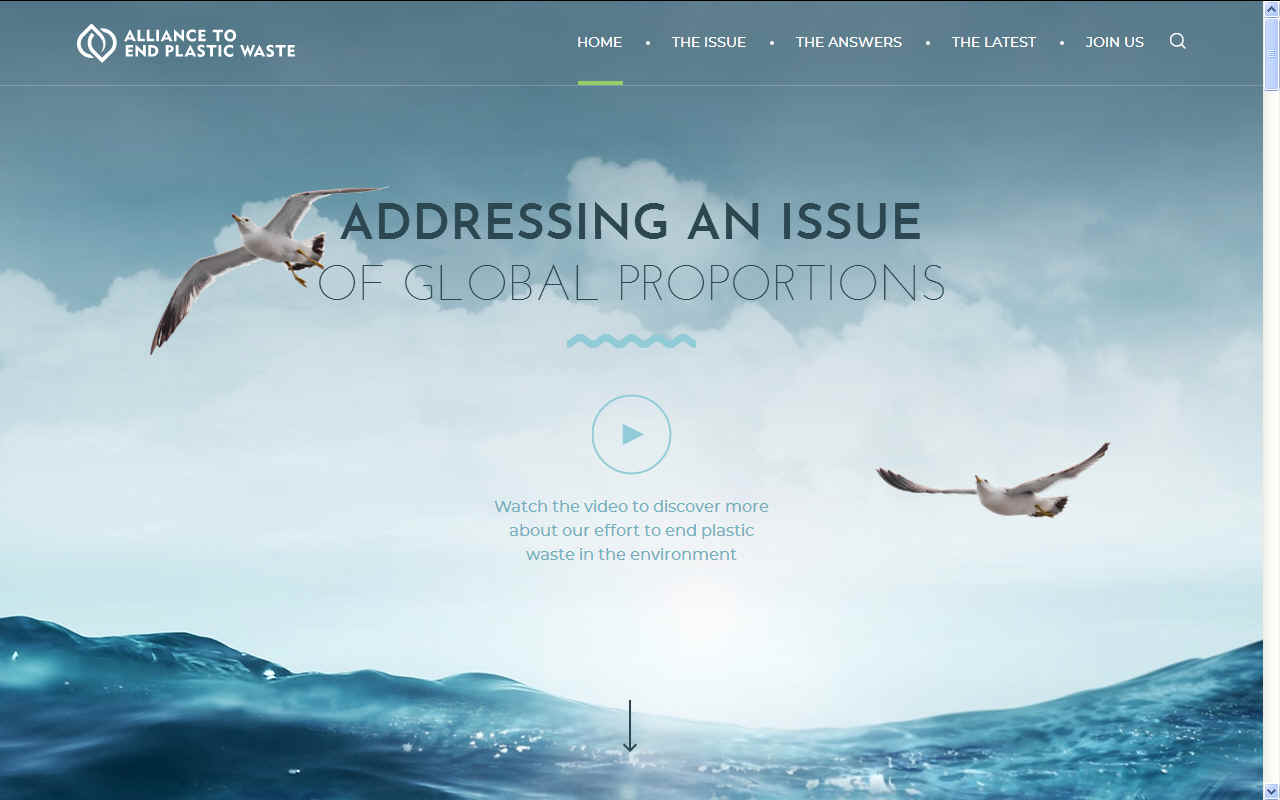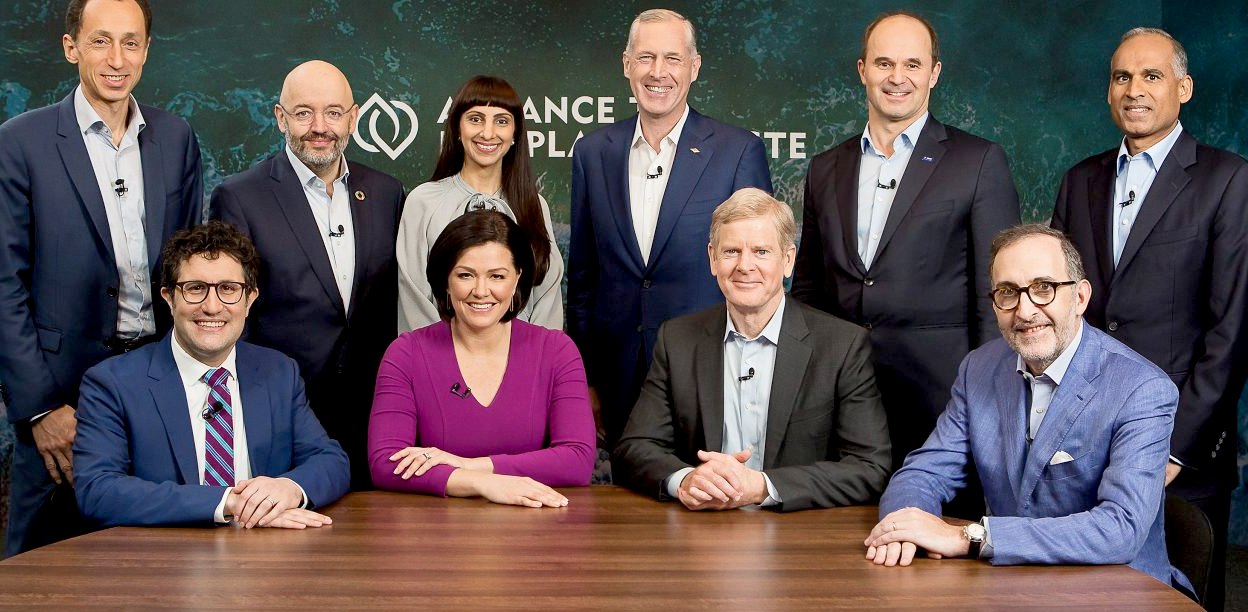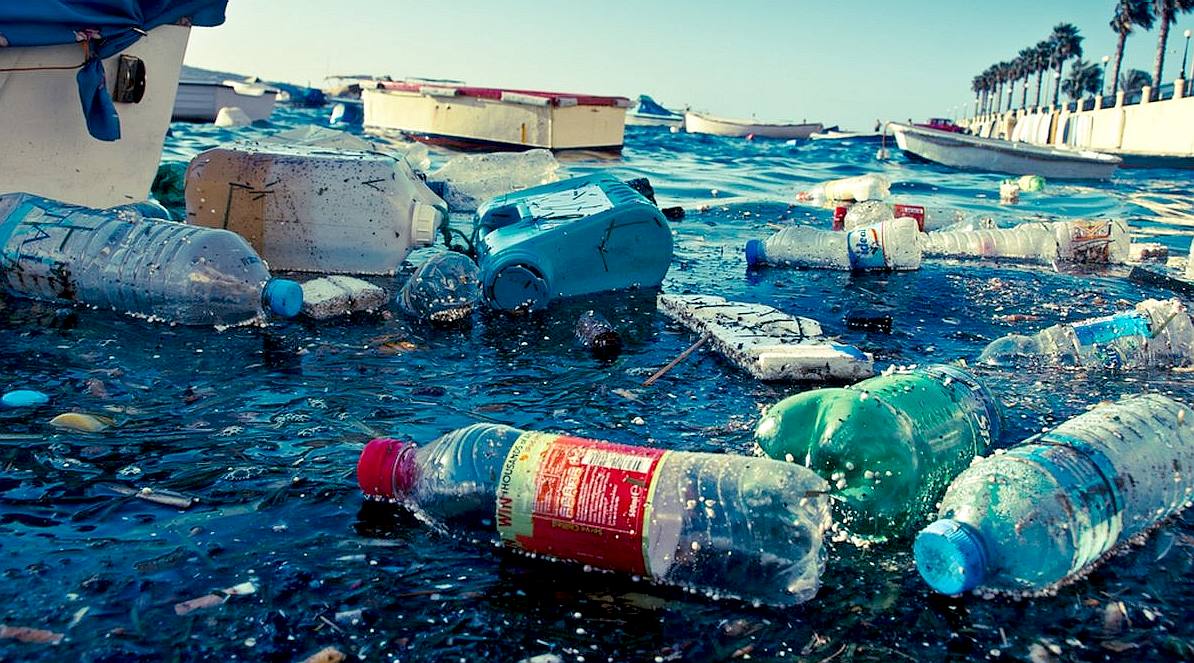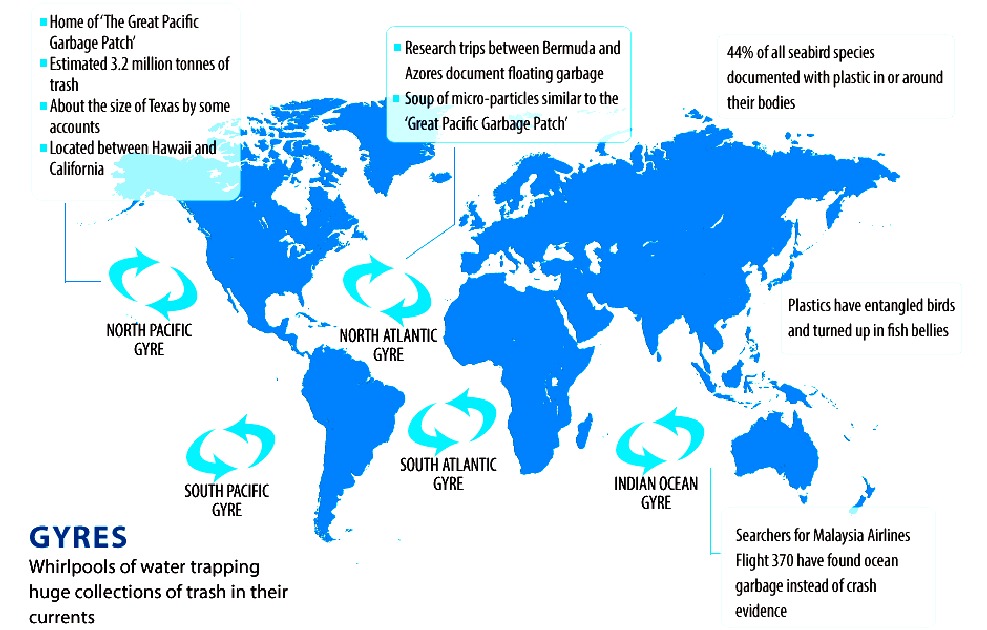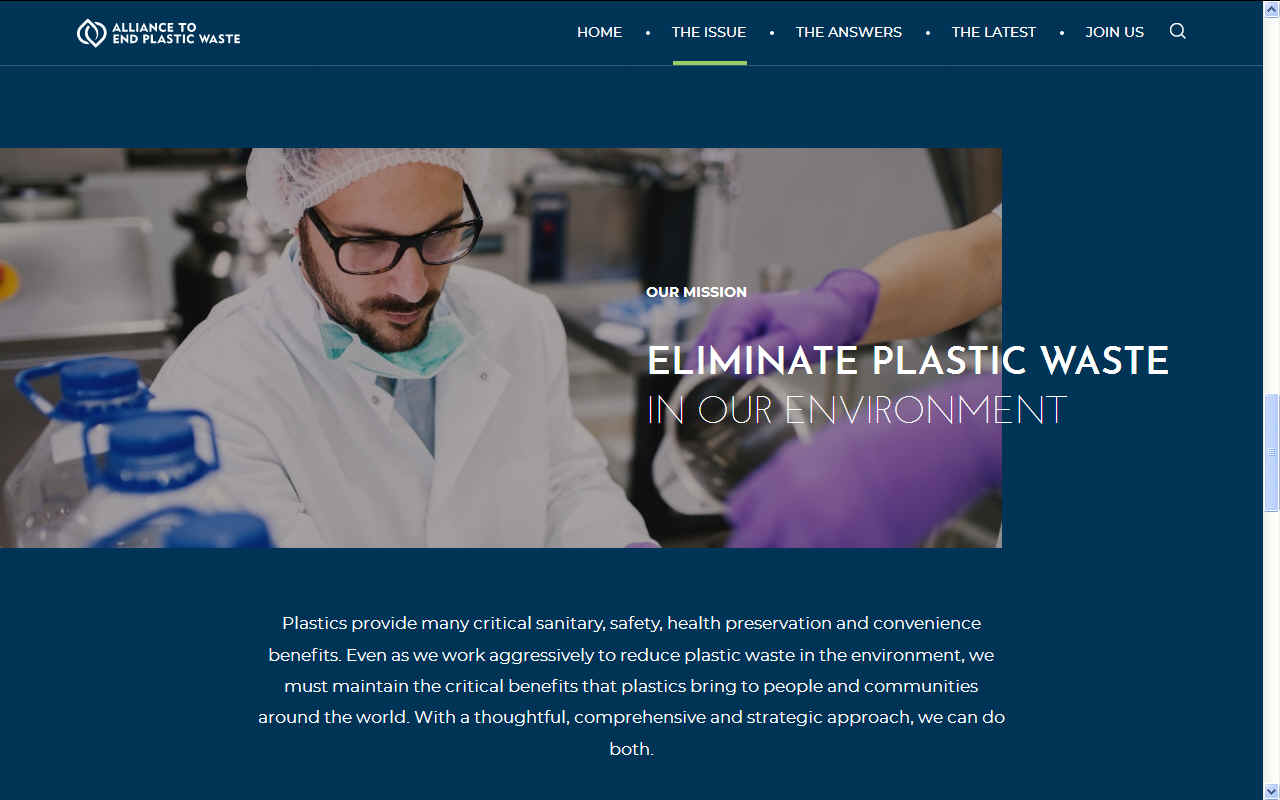|
AEPW - ALLIANCE TO END PLASTIC WASTE
WE CAN STOP THIS - Plastics provide health, safety, sustainability and convenience benefits. They contribute to improving living standards, hygiene and nutrition around the world, especially in developing countries. But plastic waste does not belong in our oceans, rivers or anywhere in our environment. There are two challenges at the heart of the plastic waste issue: lack of adequate infrastructure and systems to collect and manage household and municipal waste, and that society does not recognize waste as a valuable resource.
AEPW is a not-for-profit organization, partnering with the finance community, government and civil society, including environmental and economic development NGOs. They are working to make the dream of a world without plastic waste a reality. AEPW have a strong team composed of the world’s top minds from across the entire plastics value chain - chemical and plastic manufacturers, consumer goods companies, retailers, converters, and waste management companies. With such a collective, we anticipate good things to come.
The following companies are the founding members of the Alliance to End Plastic Waste:
Research by the Ocean Conservancy shows that plastics in the ocean predominantly originate from litter on land. Most of the plastic waste is spread through rivers and can be traced back to ten major rivers around the world, mainly in Asia and Africa. Many of these rivers flow through densely populated areas which have a lack of adequate waste collection and recycling infrastructure, leading to significant waste leakage. Once in the environment, it becomes difficult to capture. The AEPW will initiate actions where they are most needed.
ROUND TABLE - The roundtable of alliance members at the founding event on January 16, 2019, in London. [upper row]: Laurent Auguste, Senior Executive Vice President of Veolia; Peter Bakker, President and CEO of World Business Council for Sustainable Development; Priyanka Bakaya, CEO and Founder of Renew Oceans; Jim Fitterling, CEO of DOW; Martin Brudermüller, CEO of BASF SE; Bob Patel, CEO of Lyondell Basell; [lower row]: Rob Kaplan, CEO and Founder of Circulate Capital; host Hannah Vaughn Jones; David Taylor, Chariman of the Board, President and CEO of Procter & Gamble; Jean-Marc Boursier, Senior Executive Vice President of Suez.
THE FOUR FOCUS AREA OF EPW:
2. Innovation to advance and scale up new technologies that make recycling and recovering plastics easier and create value from post-use plastics
3. Education and engagement of governments, businesses, and communities to mobilize action;
4. Clean-up of concentrated areas of plastic waste in the environment, particularly the major conduits of waste, such as rivers, that carry land-based waste to the ocean
David Taylor, President and CEO of P&G: “Everyone agrees that plastic waste does not belong in our oceans or anywhere in the environment. This is a complex and serious global challenge that calls for swift action and strong leadership. This new alliance is the most comprehensive effort to date to end plastic waste in the environment. I urge all companies, big and small and from all regions and sectors, to join us."
Martin Brudermüller, CEO of BASF SE: “One important measure to end uncontrolled entry of plastics into the environment is to build up closed circles where plastic can be used as new raw material. The chemical industry plays an important role in innovating and implementing large-scale processes to convert plastic waste into new products.”
Antoine Frérot, CEO of
Veolia: “Addressing plastic waste in the environment requires the participation and long term commitment of all aspects of society, including consumers, manufacturers, technology developers, the finance community, government and civil society. No one country, company or community can solve this on their own.”
UN
SDGs
OCEAN ALLIES - The Alliance to End Plastic Waste (AEPW) is made up of nearly thirty major global companies. They have committed over $1.0 billion with the goal of investing $1.5 billion over the next five years to develop, deploy and bring to scale solutions that will minimize and manage plastic waste and promote post-use solutions. These can be recycling, reuse and repurposing of plastic to keep it out of the environment. BASF supports this initiative as a co-founding member since a collaborative effort of companies, governmental and non-governmental organizations as well as civil society is necessary to address the global challenge of mismanaged plastic waste.
* Denotes membership of the AEPW
We cannot do without plastics in our modern society. They are incredibly versatile, extending the capabilities of mankind. But plastic is getting bad press from a lack of recycling efficiency in many countries where significant quantities are being flushed out to sea via rivers and other coastal dumping.
There is nothing wrong with plastic if it is disposed of carefully. Oil derived plastics are a finite resource and non-renewable demanding special attention, as with the changeover from burning fossil fuels to renewables.
This gives us another good reason to develop a system for making the best use of plastic, and this includes recycling it way more effectively than before. We cannot afford to waste plastic that is in our oceans, and we are talking about at least 8 million tons a year of the stuff going out to sea.
FAST FOOD SLOW DEATH - It's not just fast food, it is our exploitative society that is poisoning the planet, without thought for the consequences. We've been living at artificially low prices at the expense of killing other life on earth. Eat cheap now and suffer expensively later, with health services picking up the tab and costing the taxpayer more than if we'd dealt with ocean dumping up front. We are talking here about the consequences of eating toxic fish. Technically, it is possible to remove plastic from seawater. There are two projects currently trying to achieve this, the Ocean Cleanup Projects of Boyan Slat and his giant floating booms, and the Cleaner Ocean Foundation and SeaVax.
It's easy to dismiss plastics as cheap and nasty materials that wreck the planet, but if you look around you, the reality is that we depend on it. If you want cars, toys, replacement body parts, medical adhesives, paints, computers, water pipes, fiber-optic cables, and a million other things, you'll need plastics as well.
If you think we struggle to live with plastics, try imagining for a moment how we'd live without them. Plastic is pretty fantastic. We just need to be smarter and more sensible about how we make it, use it, and recycle it when we're done with it.
Most plastics are synthetic, they'd never spontaneously appear in the natural world and they're still a relatively new technology, so animals and other organisms haven't really had chance to evolve so they can feed on them or break them down.
HENKEL
- Dr. Thomas Müller-Kirschbaum, Corporate Senior Vice President of Henkel, a founding member of the Alliance, presented the Alliance’s four areas of action and answered questions from the audience about its mission, goals and commitments. The conversation served as an opportunity to explain how the Alliance will be active in the up-stream segment, with a focus on plastic waste prevention and innovative circular design models for plastic packaging.
Since a lot of the plastic items we use are meant to be low-cost and disposable, we create an awful lot of plastic trash. Put these two things together and you get problems like the Great Pacific Garbage Patch, a giant "lake" of floating plastic in the middle of the North Pacific Ocean made from things like waste plastic bottles.
How can we solve horrible problems like this? One solution is better public education. If people are aware of the problem, they might think twice about littering the environment or maybe they'll choose to buy things that use less plastic packaging.
Another solution is to recycle more plastic, but that also involves better public education, and it presents practical problems too (the need to sort plastics so they can be recycled effectively without contamination). A third solution is to develop bioplastics and biodegradable plastics that can break down more quickly in the environment.
OCEAN CLEANUP PROJECTS A - Z
* Adidas * Algalita research foundation * Aliance to end Plastic Waste AEPW * Baltimore Mr Trash river cleaning barge * BAN - Basel Convention Action Network * Boyan Slat's ocean booms * CLAIM H2020 EU marine plastic project * Earth Day - Fact sheet ocean plastic * Fionn Ferreira's ferrofluid extraction of microplastics * FlashLight Press Michelle Lord & Julia Blatt * GRIPS - Global Research & Innovation in Plastics Sustainability * Interceptor tethered river cleaning barges * Junk Raft - plastic awareness voyage * Kids Against Plastic Tat KAPTAT * Miss Ocean - Plastic Awareness Events * 4Ocean recycled plastic bracelets * Nike - Sneakers from recycled materials, ocean spills * Plastic Oceans Org * Seabin * SeaVax autonomous drones * Surrey University PIRATE & Triton * Sussex Bay - Coastline marine rewilding project * WRAP - Waste & Resources Action Programme
LINKS & REFERENCE
https://endplasticwaste.org/ https://www.renewoceans.org/ https://www.basf.com/global/en/who-we-are/sustainability/responsible-partnering/Alliance-to-end-plastic-waste.html
BUILD UP - Plastic has accumulated in five ocean hot spots called gyres, see here in this world map derived from information published by 5 Gyres. All that plastic just floating around is a huge waste of resources in a sustainable sense, where we should be aiming for a circular economy.
ABS - BIOMAGNIFICATION - CANCER - CARRIER BAGS - COTTON BUDS - DDT - FISHING NETS - HEAVY METALS - MARINE LITTER MICROBEADS - MICRO PLASTICS - NYLON - PACKAGING - PCBS - PET - PETROLEUM - PLASTICS - POLYCARBONATE - POLYOLEFINS POLYPROPYLENE - POLYSTYRENE - POLYTHENE - POPS - PVC - SHOES - SINGLE USE - SOUP - STRAWS - WATER
This website is provided on a free basis as a public information service. copyright © Cleaner Oceans Foundation Ltd (COFL) (Company No: 4674774) 2023. Solar Studios, BN271RF, United Kingdom. COFL is a company without share capital.
|
